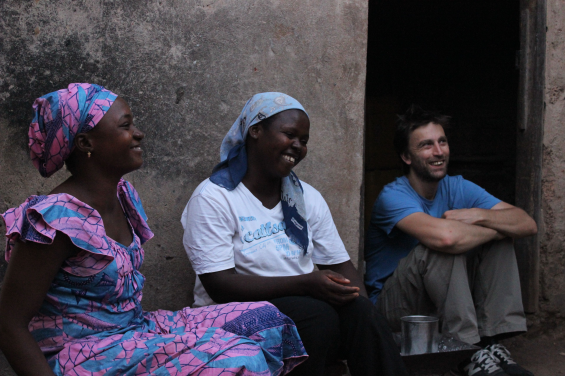
Two years ago, we realised that there were many people working in aid and development all across the globe who are doing so unsupported. These are people who are often young, inexperienced, thrown out into the deep end, and
in often isolating conditions to do humanitarian work. We researched further into the topic, and discovered that this problem was rife.
In 2004, a
paper
published in the Australasian Journal of Disaster and Trauma Studies found that there was increasing evidence to suggest, “international humanitarian staff are at risk of developing significant mental health problems”. In an overview of the
literature, the author highlights higher than average rates of PTSD, depression, anxiety and alcohol abuse.
Keeping in mind that there are approximately 220,000 Western aid workers working around the world, we were surprised to find that existing support networks for these workers didn’t exist.

With funds raised through
StartSomeGood, we piloted a program of peer support, matching up isolated aid workers around the world so that they could support each other. Over 300 aid workers participated. We had people working in Sudan
who were communicating over Skype with others in Nepal, discussing how to improve the way that they do their work. The feedback we received from our pilot was promising (check out our report here:
http://www.whydev.org/initiatives-and-partnerships/peer-coaching/) We feel like we have some good lessons learnt to launch the next iteration of this program: DevPeers.

DevPeers, as a social enterprise, will be a paid service to ensure the financial sustainability necessary for a high quality peer-to-peer network, where profits will be reinvested into WhyDev to fulfill it’s mission, namely,
providing:
·
Peer-to-peer support
·
Professional, emotional, and learning support
·
Career guidance and professional developmentopportunities
·
Mentoring
·
Mental health support
It is our vision that by helping aid workers, DevPeers will enable better aid service delivery.
We think it's an incredbly cost effective way to use existing resources to improve the way aid is delivered across the globe.





